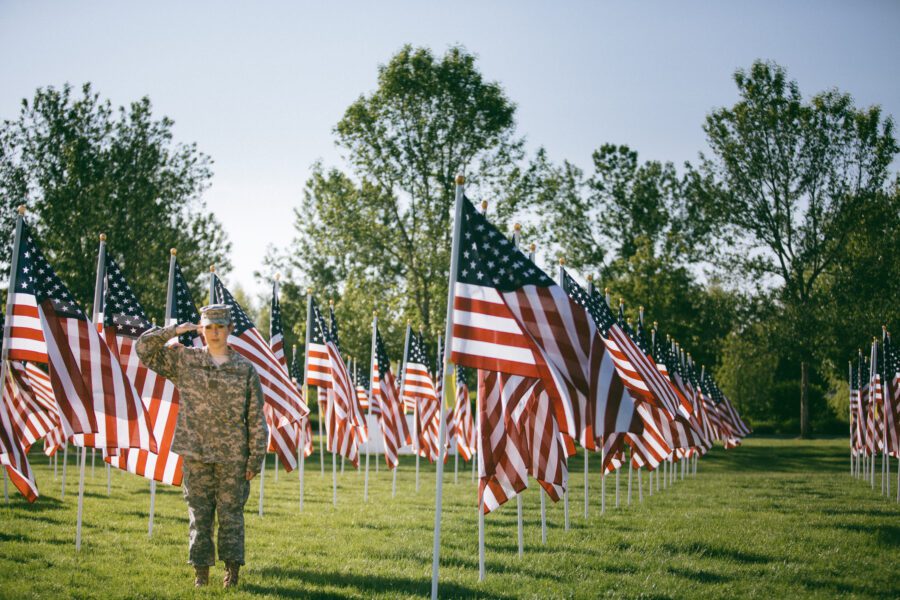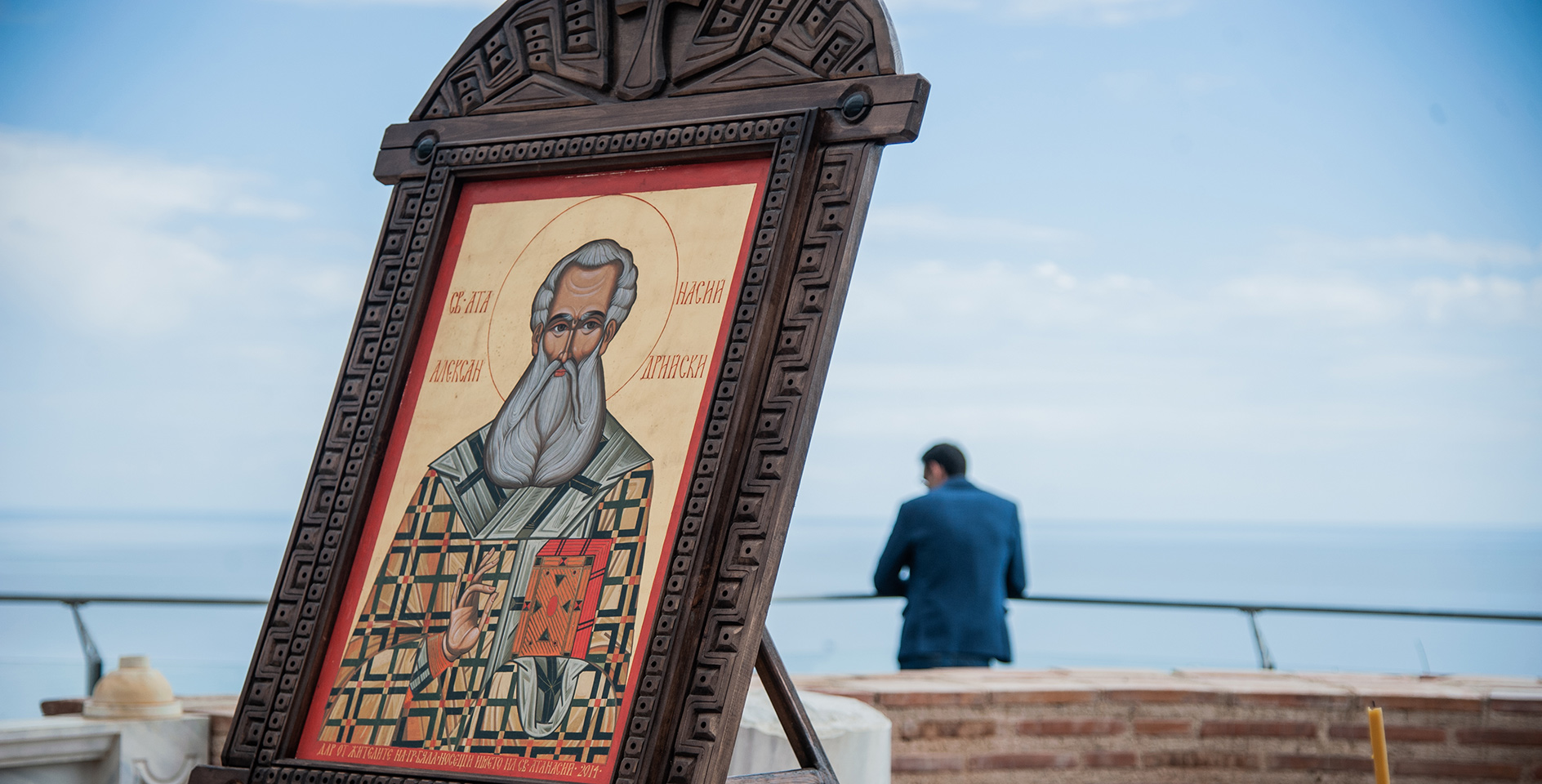In 1944, as the United States was fighting World War II, the government and policymakers turned their eyes to preparing for the end of the hostility. Recognizing that the fighting was likely to threaten millions in Eastern Europe with famine-like conditions, there was considerable concern in the U.S. about how to serve them. In response, the Minnesota Starvation Experiment was created. The study systematically studied the effects of starvation along with the physical and psychological effects of a lack of food. It was also supposed to test out different dietary supplements and rehabilitative methods to ensure the best outcome for those who had starved.
The 36 participants for the study were largely drawn from the ranks of conscientious objectors. Thus, they were men who would have been drafted and called to serve in the armed forces, but who objected to the use of violence or war. The government, recognizing the conscience rights of these objectors, allowed them to complete their service in other ways such as the Civilian Public Service, performing civic work rather than fighting in the conflict. The young men who participated were not cowards, but rather those who were willing to subject their bodies to the extremes of starvation in an effort to serve their country.
As one participant said, “I felt very useful … There were hundreds of people like me who didn’t have that type of opportunity, and I felt very fortunate that I could be there.”
The service of these men to their country was carried out most ably not through fighting, but through participating as they were able to serve those who were starving.
The existence of the Minnesota Starvation Experiment is instructive for this current moment as debates resurface about the possibility of drafting women and the extreme position of drafting them to combat positions. These debates reflect a misguided sense that the military would need to call upon women because some future threat would be so dire or our preparedness so abysmal. On the other hand, it accords with the spirit of the age to enact a policy that would continue to erase all distinctions between men and women, treating them as interchangeable parts in marriage, families, and now military service.
The example of the Minnesota experiment highlights that in the middle of a war, a country does not necessarily need more soldiers or military personnel, but rather a broad culture of individuals willing to sacrifice for one another. Only then can the problems the military faces be adequately addressed.
Real problem, wrong solution
The U.S. has had an all-volunteer force for over 50 years. Following a directive from President Nixon, the Gates Commission recommended the creation of the all-volunteer military. And in January 1973, then Defense Secretary Melvin R. Laird announced, “I wish to inform you that the armed forces henceforth will depend exclusively on volunteer soldiers, sailors, airmen, and Marines. Use of the draft has ended.” Since that time, the U.S. has relied on individuals who believed that serving in the armed forces was beneficial to them—whether because of increased pay or other benefits like the G.I. Bill—or that it accorded with a sense of patriotic duty and obligation.
However, in recent years, the military has reported record lows in terms of people willing to serve.
- A 2023 study by the Ronald Reagan Presidential Foundation and Institute found that only 46% of Americans had trust and confidence in the military, down 24 points from 2018.
- In 2022, the Army fell 15,000 soldiers (or 25%) short of its recruitment goal.
And they are not alone in repeatedly failing to achieve the recruiting quotas. The Air Force, Navy, and Coast Guard all have struggled to meet their goals for new recruits.
And in the face of growing threats internationally, there are questions about our preparedness to respond to threats to our own safety and security. On a world stage where Russia aggressively attacks Ukraine and builds a closer relationship with North Korea, China threatens Taiwan’s right to exist, and open hostility has broken out in the Middle East between Israel and Hamas, the American military rightly is concerned about military readiness. There is no direct threat to the U.S. in these military conflicts, but the rise of hostility raises fair questions about how to ensure we could respond appropriately if it became necessary.
However, the answer is not to require women to serve in combat roles under either a sense of “fairness” or a fear that more soldiers are needed.
Erasing distinctions and gender ideology
The measure to require women to serve in combat roles is connected to the mood of the age in which fairness or surface-level equality are the grounds for all decisions. The thinking goes something like this: because men are required to serve in combat roles, and there is no actual difference between a man and a woman, then women should also be required to serve.
The same ideology behind allowing biological men to compete in women’s sports also requires women to take up arms as if there was no difference among them. While supporters of one may not see the connection, as Christians who recognize the complementary differences between men and women in God’s good design, we must repudiate any attempt to treat men and women as cogs which can be swapped in and out without thought for distinctions.
Proponents of the measure, including some Republicans, might disagree with this assessment, but the logic is the same. In the case of sports, there is a growing push to ensure that the biological differences between men and women are recognized, and that women’s rights are protected. Female athlete should not be required to compete against a male who has gone through puberty and whose physiology is now drastically different. In the world of sports, conservatives are agreed that there are very real differences and recognize the distinctions of biology.
However, that is not necessarily the case in the military. Here, senators who have opposed biological men competing in women’s sports can say, “I personally think it would be appropriate for them [women] to register just like men do.” Men and women are not interchangeable in the swimming pool or around the track. But, to some legislators, they are when directed to put their life on the line.
If men and women are mere social constructs, then there is no reason to not require they register and step onto the front lines. But this is a lie. Try as culture might to make this true, it’s impossible to overcome the truth that differences do exist.
Further, the decision to require women to register for the draft in noncombat roles would at best be a slippery slope toward requiring them to serve in combat roles, if not a direct requirement. In previous generations when women’s service in the military was relegated to support roles as nurses or pilots, then the drafting of women would not have been a decision to send women to combat. However, in 2016 the Defense Department removed the last restriction on women in active combat. At that time, all combat positions were opened to women. The reasoning went that if women were qualified, then there was no reason to stop them “to have the opportunity to wear the uniform and be part of America’s military force.”
The sentiment expressed by then-Defense Secretary Leon Panetta is one that taps the best of the traditions of America. No matter your race, ethnicity, creed, or lineage, you can join the military and serve your country. For many who the nation did not consider full citizens, such as African Americans in the 1940s, military service was key to breaking down barriers with others and charting a path to full equality.
However, that impulse of equality is one that misses the very real differences which exist between men and women, and which we should expect of those required to put their lives on the line.
A country which treats men and women as interchangeable and not discernibly different when it comes to requiring combat service is a country where something is incredibly wrong. It may be the case that it faces an existential threat (as with Israel’s constant threats from terrorist organization and hostile neighbors) and each citizen must take up arms because the danger is so profound. But in the context of the U.S., it is more a product of a worldview that ignores the reality that men and women are different.
Supporters of the proposal may point to other nations which require military service for women, Israel among them. To these individuals, I would offer two cautions. First, the list of countries who are “enlightened” enough to require military service of women includes others we would not hold up as exemplars of progress, such as North Korea. But more importantly, the existence of a nation like Israel, which is continually threatened in its existence from hostile neighbors and terrorist organizations, is not the same position as the U.S., which has an all-volunteer force. The U.S. does not face a threat to its very existence so dire as to rise to the level of Israel’s need for every citizen to be able to be mobilized.
Encourage service and civic participation, not drafting to meet quotas
Were the U.S. to face such a threat, it would not solely be the military and its soldiers who would carry us through such an existential crisis. It would be the citizenry who are committed to the nation and its citizens.
The participants of the Minnesota Starvation experiment are proof that while soldiers are important, just as important is a culture that seems our collective good as tied up together. And just because an individual may not be willing to fight as a soldier, does not mean that they cannot participate in the defense of a nation. The conscientious objectors had every legal right to take a civilian job and build roads or bridges during the war effort because they would not take up arms. However, the men serving at Minnesota wanted to do more for their nation and saw their participation here as part of the larger war effort.
That kind of mentality is possible only when you have a culture which sees your responsibility to serve and to take on the hard task because it is necessary for others. Their work ended up being incredibly important to informing the practical steps of the Marshall Plan and U.S. famine relief following the war. There are people in Europe alive today not because the Minnesota men sacrificed their bodies on the beaches of Normandy, but because they sacrificed them in a lab in Minnesota studying the effects of hunger and deprivation.
If the U.S. faces a threat drastic enough that women were required to be fight, then I would hope that we would have a citizenship and culture where people took it upon themselves to volunteer. People who saw it as their duty to respond to an attack against our nation with the kind of resolve that the men in Minnesota had. Not a posture of “I have done the bare minimum of what is expected of me socially” but rather, “What more can I do for the nation I love, and the citizens I love.”
That is a question of culture, not of policy. It’s one that cannot be legislated, no matter how many draftees the government seeks to call up. It’s a solution that only comes from cultivating civic virtue and neighbor love in our citizens.









